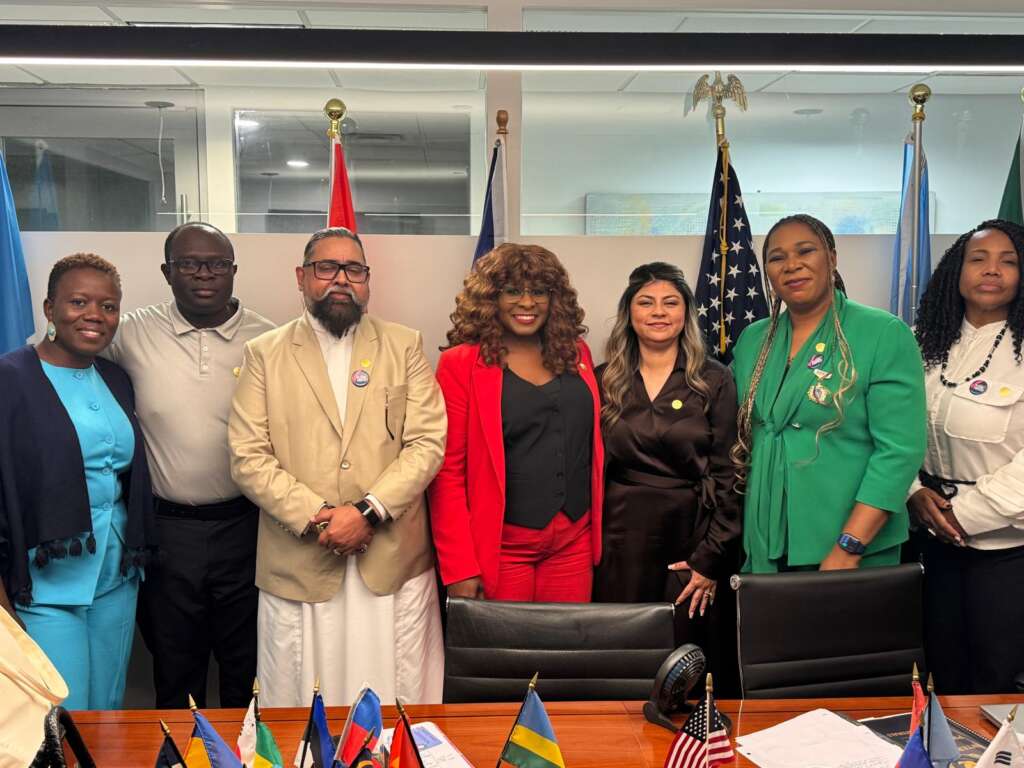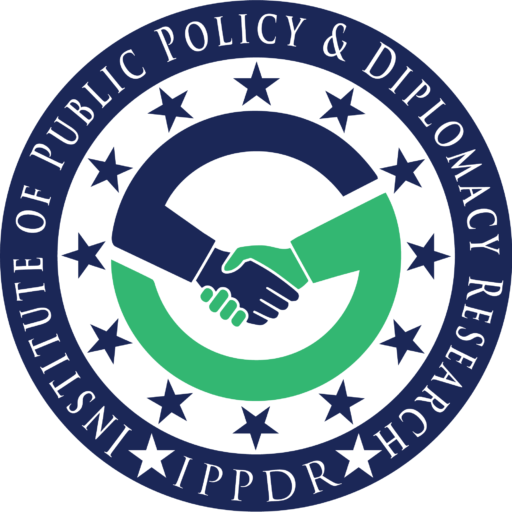Peace Practitioner in the Modern Era
At a time when many nations and neighborhoods are losing critical funding for peacekeeping and humanitarian programs, the world stands at a crossroads. Nevertheless, the need for peacebuilding has never been greater, yet global attention and resources are being diverted elsewhere.
In this vacuum of support, conflict, misinformation, and despair have quietly deepened.
It is precisely in such moments that the mission of the Peace Practitioner becomes relevant and indispensable. The urgency to protect, to serve, and to preserve human dignity must rise above political fatigue and financial shortfall.

Recognizing this reality, the Institute of Public Policy and Diplomacy Research (IPPDR) has strategically launched a transformative Peace Practitioner Training Program.
This is an international framework designed to prepare a new generation of leaders to rebuild bridges between governments, civil society, and global institutions.
It responds to one of the greatest diplomatic imperatives of our time, and that is, to sustain peace when the structures meant to uphold it are under strain.
This initiative reaffirms IPPDR’s mission to strengthen peace infrastructures, promote ethical governance, and champion the fundamental values of coexistence and humanity.
Redefining the Peace Practitioner in the 21st Century
The Peace Practitioner of today represents a multidimensional leader. One trained to respond to the symptoms of conflict and their structural causes. In an era where diplomacy alone cannot reach the grassroots and humanitarian actors cannot always influence state policies, Peace Practitioners stand as the bridge.
Likewise, they combine strategic understanding of international relations with moral clarity, empathy, and intercultural intelligence. They are mediators, educators, and advocates, capable of navigating both high-level negotiations and community-level reconciliation.
Primarily, their mission is to restore confidence where it has been lost, build trust between divided communities, and ensure that peace is not a temporary pause, but a lasting transformation.
Peace Practitioners serve as connectors, linking governments, multilateral organizations such as the United Nations, and local civil society, to promote dialogue, prevent violence, and help societies recover from trauma.
Consequently, they redefine what leadership means in a world that is both interconnected and deeply divided.
The IPPDR Peace Practitioner Training: A Bridge Between Policy and Humanity
First, the IPPDR Peace Practitioner Training includes a rich and visionary training curriculum that reflects both the practical realities of global governance and the moral foundations of human security.
Secondly, the program emphasizes experiential learning and real-world application through UN simulations, peace treaty negotiations, and post-conflict dialogue workshops.
At the same time, it is a bridge between policy and humanity, training practitioners who can both design strategy and engage people.
Core Modules Include:
- Government–Civil Society Collaboration: Enhancing cooperation and transparency to ensure inclusive decision-making.
- UN Simulations and Treaty Negotiations: Developing technical knowledge and procedural skills in drafting and mediating peace agreements.
- Human Trafficking Awareness: Confronting one of the world’s gravest human rights violations through advocacy and prevention mechanisms.
- Human Rights and Dignity: Upholding international standards that safeguard freedom, equality, and justice.
- Negotiation and Mediation: Learning multi-party dialogue and nonviolent communication to resolve disputes diplomatically.
- Post-Conflict Reconstruction: Designing frameworks for governance rebuilding, social reintegration, and economic stabilization.
- Trauma-Informed Peacebuilding: Addressing the psychological and emotional dimensions of peace by restoring trust and empathy.
Each module is grounded in ethical leadership, accountability, and compassion, enabling practitioners to engage confidently in today’s complex geopolitical environment.
Core Values: The Heart of Peace Practice
At its foundation, the IPPDR Peace Practitioner Program is driven by a set of unwavering core values:
- Service Before Self: Upholding the principle that peace is a duty, not a position.
- Integrity in Diplomacy: Ensuring transparency and moral clarity in every negotiation or mission.
- Respect for Diversity: Recognizing that unity is strengthened, not threatened, by cultural difference.
- Empathy and Human Solidarity: Valuing every human life as sacred, every culture as meaningful, and every voice as deserving of dignity.
- Accountability to Humanity: Measuring success not by policy outcomes alone, but by the lives restored, communities rebuilt, and trust renewed.
- Sustainability and Innovation: Applying modern tools, from digital diplomacy to social development strategies, to sustain peace in an evolving world.
Furthermore, these values remind practitioners that peace is not an abstract concept, but a living responsibility that begins with one’s own moral conviction and extends to the global community.
Peace as the Foundation of Governance and Diplomacy
Peace is not merely the absence of war; it is a governance model, a diplomatic discipline, and a societal framework. Nevertheless, IPPDR’s program redefines peace as a structured system of cooperation, justice, and shared responsibility.
Governments, multilateral agencies, and local communities must work together to uphold international law, defend human rights, and ensure that citizens have access to opportunity and protection.
Peace Practitioners are trained to help bridge these partnerships, transforming words into actions and policies into progress.
Through treaty simulations and policy analysis, participants gain insight into how agreements are negotiated and how early diplomacy can prevent renewed conflict.
They learn that sustainable peace cannot be imported or imposed; it must be cultivated through inclusion, education, and trust.
Addressing Human Trafficking and Post-Conflict Realities
Admittedly, in today’s humanitarian landscape, human trafficking, gender-based violence, and forced displacement remain pressing threats to peace and human security. The Peace Practitioner Program equips participants with the capacity to combat these crises through multi-sector collaboration and survivor-centered approaches.
Equally, post-conflict recovery is central to the curriculum. Communities torn apart by violence face long-term trauma and institutional breakdown. IPPDR trains practitioners to support reconciliation efforts that heal psychological wounds while rebuilding governance and infrastructure, ensuring that peace endures beyond the signing of treaties.
Diplomacy Rooted in Humanity
The Institute’s approach to peace education recognizes that true diplomacy must be rooted in humanity. The future of peace depends on individuals who combine professional skills with personal integrity, who can listen, understand, and lead with humility.
By integrating theory with practice, IPPDR produces graduates capable of serving as ethical diplomats, humanitarian advisors, and global advocates. Their work strengthens institutions, rebuilds communities, and restores hope in regions that have suffered conflict or neglect.
A Global Vision for Sustainable Peace
Indeed, the Institute of Public Policy and Diplomacy Research serves as a beacon for the conviction that peace is not a privilege, but a global necessity.
At a time when peacekeeping budgets shrink and geopolitical tensions rise, this program renews faith in the transformative power of trained individuals who can serve beyond borders and politics.
The Peace Practitioner is the guardian of trust in an era of division, the voice of balance in a world of extremes, and the ambassador of conscience in times of silence.
Through this program, IPPDR affirms its enduring message to the world:
We do not observe change – we design it.
For more information, visit us at: https://ippdr.org/

